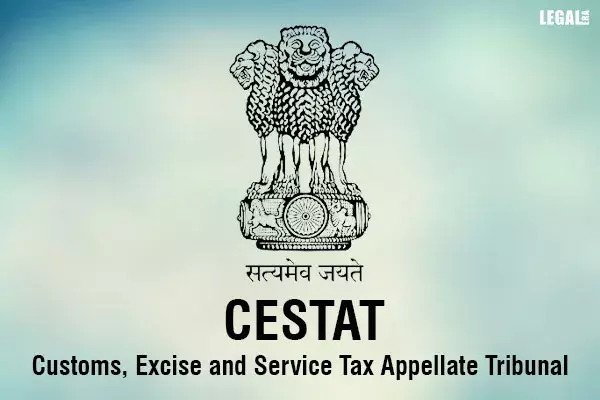CESTAT Rules Mere Wrong Availment Of Exemption Notification Does Not Indicate Intent To Evade Excise Duty
The New Delhi Bench of the Customs, Excise, and Service Tax Appellate Tribunal (CESTAT) has clarified that merely availing;

CESTAT Rules Mere Wrong Availment Of Exemption Notification Does Not Indicate Intent To Evade Excise Duty
The New Delhi Bench of the Customs, Excise, and Service Tax Appellate Tribunal (CESTAT) has clarified that merely availing an exemption notification incorrectly does not automatically imply an intention to evade central excise duty.
A bench comprising Dilip Gupta (President) and P. V. Subba Rao (Technical) emphasized that unless the department can substantiate that the suppression was deliberate and aimed at evading duty, such a conclusion cannot be drawn. The Tribunal stated:
"Mere wrong availment of an Exemption Notification would not lead to a conclusion that it was with an intent to evade payment of central excise duty unless the department is able to not only allege but substantiate that the said suppression was deliberate with an intent to evade payment of central excise duty."
The case involved an assessee engaged in manufacturing allopathic medicines and food products. The company had been availing Area-Based Exemption for excisable goods since December 25, 2004. However, during an audit, authorities observed that the assessee was not eligible for the exemption, leading to a short payment of excise duty.
Subsequently, a show cause notice was issued, alleging that the assessee had wrongfully availed the exemption with fraudulent intent and cleared finished goods without paying the appropriate excise duty.
The assessee challenged the Commissioner’s order before the Tribunal, arguing that the entire disputed period in the show cause notice fell under the extended period of limitation under Section 11A(4) of the Central Excise Act. The assessee contended that, given the circumstances, the extended limitation period should not have been invoked.
The Tribunal found that the Commissioner had assumed intentional non-compliance solely because the assessee did not meet the exemption notification’s conditions. However, the Tribunal ruled that the Commissioner had failed to consider the assessee’s response correctly.
It further held that, in the absence of clear evidence proving an intent to evade duty, invoking the extended limitation period under Section 11A(4) was not justified.
The Tribunal agreed with the assessee’s argument that it had bona fide believed it was entitled to the exemption. The mere fact that the benefit was later denied did not mean that the assessee’s belief was mala fide.
The Bench observed:
"Suppression of facts should be deliberate, meaning that the correct information was knowingly withheld to evade duty. The show cause notice merely states that the appellant wrongly availed the exemption with intent to evade excise duty but does not explain why such intent should be assumed."
Based on these findings, the Tribunal allowed the appeal, ruling in favor of the assessee and setting aside the Commissioner’s order.

